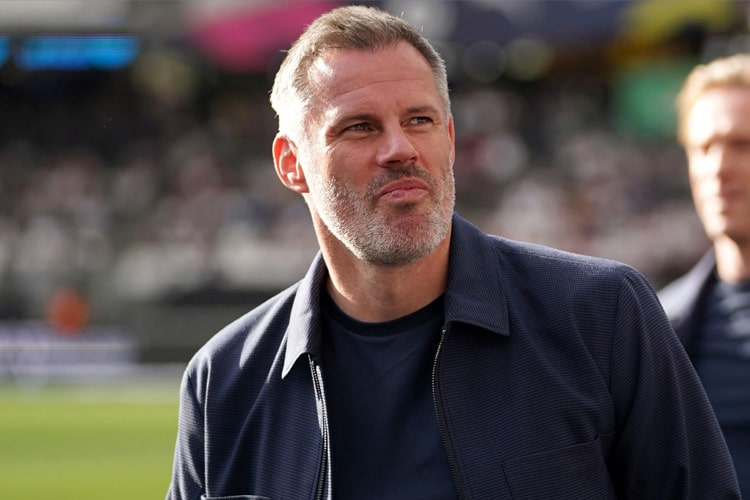Arsenal has top players, but none are world-class

Arsenal was six points ahead in the Premier League five games ago, but now they have to settle for fourth place. Jamie Carragher doesn't think The Gunners will win the title.
Carragher's commentary on Sky Sports delves deep into Arsenal's struggles, particularly highlighting their performance slump compared to last season.
Arsenal, once leading the Premier League, now finds itself grappling with issues, particularly in its offensive tactics. Carragher pointed out the team's recent game against Fulham as a prime example, where despite an early lead, Arsenal struggled to create substantial chances to secure a dominant win. This match, according to Carragher, showcased both Arsenal's weaknesses and Fulham's unexpected resilience.
The comparison with the previous season's Arsenal team reveals significant changes in their playing style. Carragher notes that while there is an evident improvement in defensive control, it seems to have come at the cost of offensive effectiveness. This, he argues, is a critical issue, especially in the context of the Premier League where attacking prowess often determines the title contenders.
Focusing on individual performances, Carragher specifically mentions Gabriel Martinelli's struggles among the front four. He contrasts this season's choices in the midfield, particularly the roles of Leandro Trossard and Declan Rice, with the previous season's reliance on Granit Xhaka. According to Carragher, these changes have not favored Martinelli, leading to repetitive and predictable attacking patterns.
Carragher is also candid about the quality of Arsenal's attackers. While acknowledging their talents, he argues that none of them currently meet the 'world-class' standard necessary to clinch a Premier League title. He highlights the transformative impact of world-class players in other teams, like Mohamed Salah at Liverpool and Sergio Agüero, followed by Erling Haaland at Manchester City. These players, in his view, were instrumental in their teams' successes, a caliber of influence Arsenal currently lacks.
The discussion then shifts to Arsenal's recruitment strategy and the likelihood of signing a player of such high calibre. Carragher expresses skepticism about Arsenal's ability to attract such talents, hinting at the challenges they might face in competing with clubs like Manchester City. This aspect of the conversation sheds light on the broader competitive landscape of the Premier League, where player acquisitions play a pivotal role in shaping a team's title aspirations.
In summary, Carragher's detailed analysis paints a picture of an Arsenal team that, despite its strengths, faces significant hurdles. These include a need for improvement in attack, reliance on players to step up to a world-class level, and the overarching challenge of competing in the transfer market against teams with more resources and allure for top-tier players.